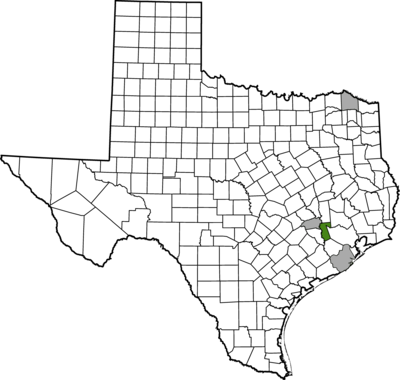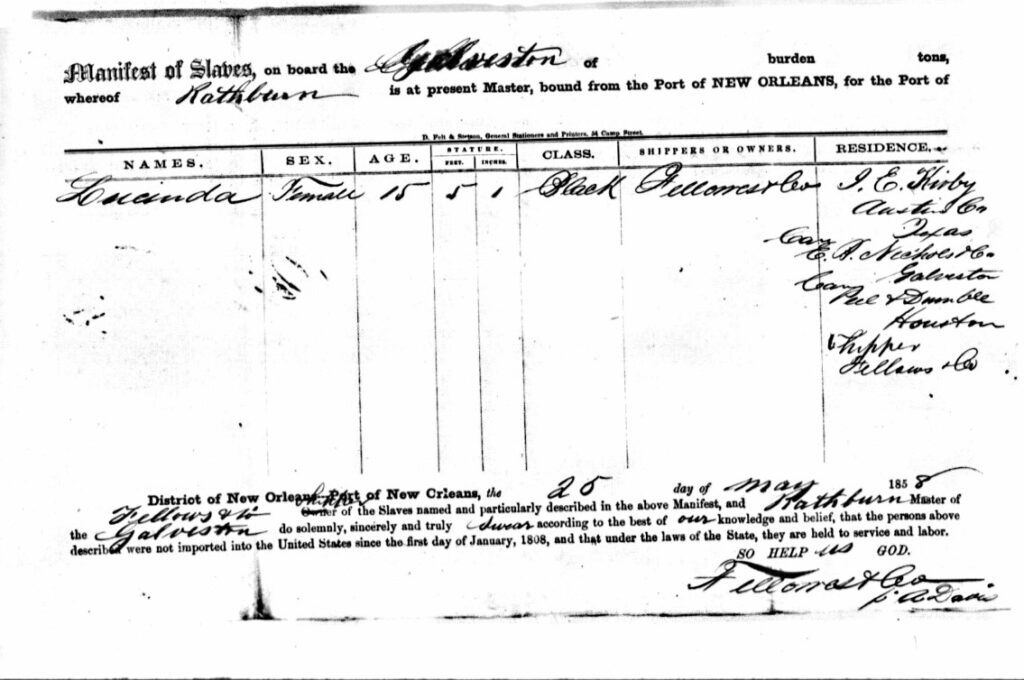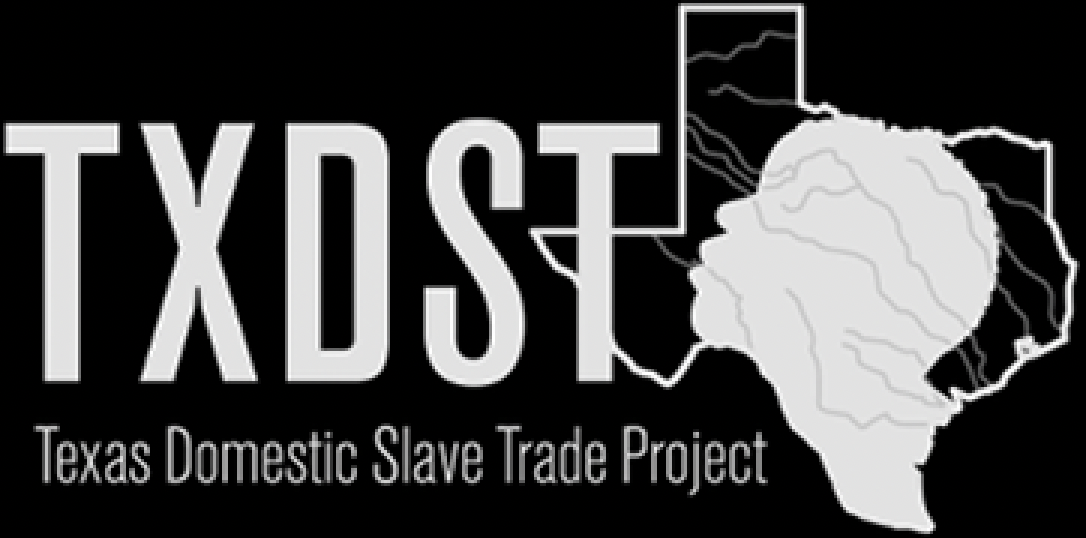
Waller County
Understanding Slavery from Top down and Bottom Up
Methodology: Genealogy and Archives
Most historical explorations of the past take a top down approach often focusing on the experiences of those individuals belonging to the upper strata of society. This problem is complicit to the lack of understanding and myths around the experiences of enslaved people and slavery. It is true that affluent members of society were more prone to keeping records such as diaries, journals and ledgers. However, there are methodological approaches centered in genealogy and archives that bring light to the histories and experiences of marginalized groups.
Genealogy, research focused on familial descendancy and networks, provides a dynamic avenue from which to explore the lives of black people in slavery and freedom. Whether searching census records or online databases, tapping into family histories brings clarity to the ways we picture the past, especially for the formerly enslaved. Archives add a more in depth layer of exploration to genealogy through providing access to manuscripts and private collections that illuminate the lived experience in even more penetrating ways. Coupled, genealogy and archival work position researchers lay and trained, to gain immense knowledge from exposure to primary sources and artifacts.

My students and I are currently engaged in researching the experiences of enslaved people who resided on the Alta Vista Plantation, now home of Prairie View A&M University. We employ the methods described above. Reflecting on our experiences, we offer the following points for teachers and students:
- Genealogy is an important research tool for exploring history and analyzing family histories.
- Seek opportunities to connect with local archives and collaborate with them to promote your area’s history.
- Be willing to discuss tough topics in constructive ways-
- Embrace community (local and extended) in all of the historical complexities that come with it.
- Share your findings from your genealogical and archival work. Awareness is key to gaining a shared understanding of our collective and shared history.
